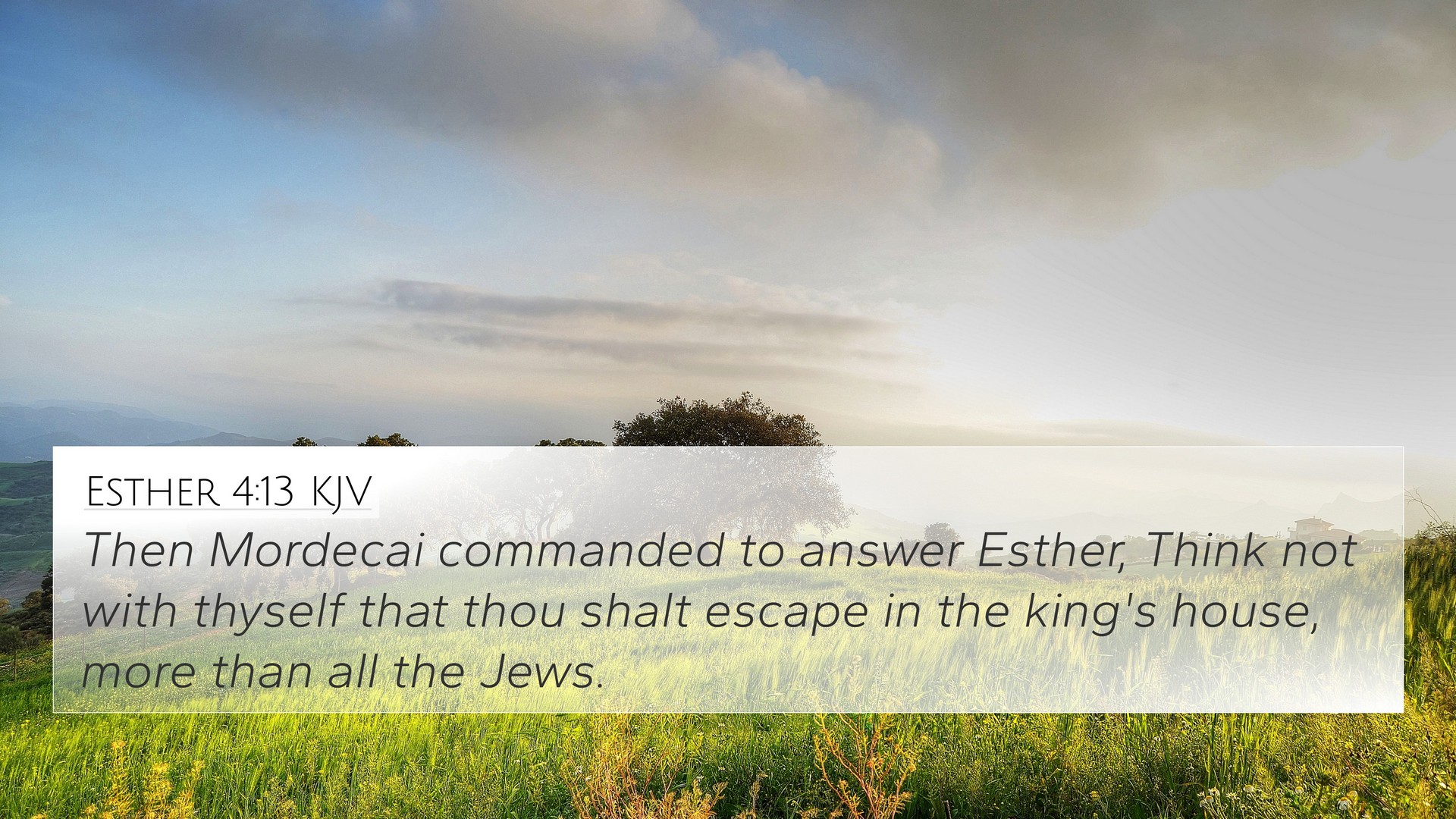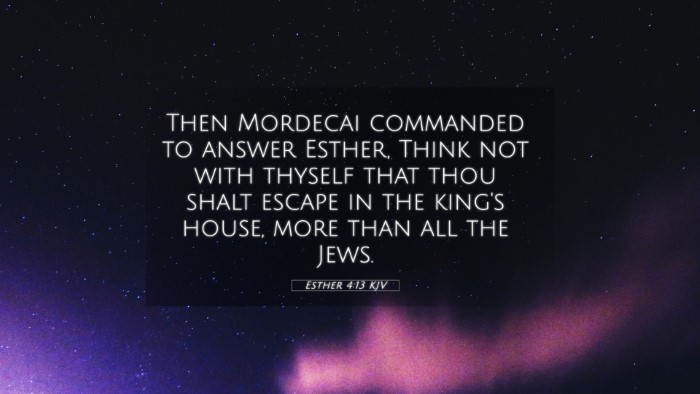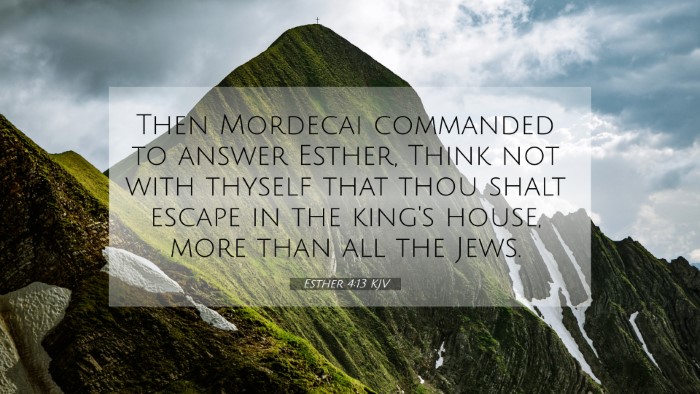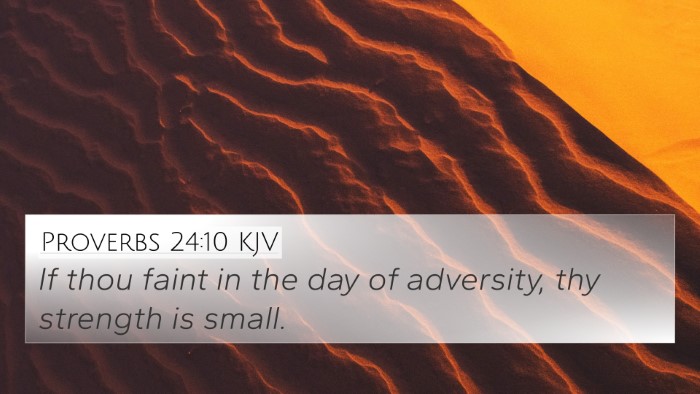Old Testament
Genesis Exodus Leviticus Numbers Deuteronomy Joshua Judges Ruth 1 Samuel 2 Samuel 1 Kings 2 Kings 1 Chronicles 2 Chronicles Ezra Nehemiah Esther Job Psalms Proverbs Ecclesiastes Song of Solomon Isaiah Jeremiah Lamentations Ezekiel Daniel Hosea Joel Amos Obadiah Jonah Micah Nahum Habakkuk Zephaniah Haggai Zechariah MalachiEsther 4:13 Similar Verses
Esther 4:13 Cross References
Then Mordecai commanded to answer Esther, Think not with thyself that thou shalt escape in the king's house, more than all the Jews.
Uncover the Rich Themes and Topics of This Bible Verse
Listed below are the Bible themes associated with Esther 4:13. We invite you to explore each theme to gain deeper insights into the Scriptures.
Esther 4:13 Cross Reference Verses
This section features a detailed cross-reference designed to enrich your understanding of the Scriptures. Below, you will find carefully selected verses that echo the themes and teachings related to Esther 4:13 KJV. Click on any image to explore detailed analyses of related Bible verses and uncover deeper theological insights.
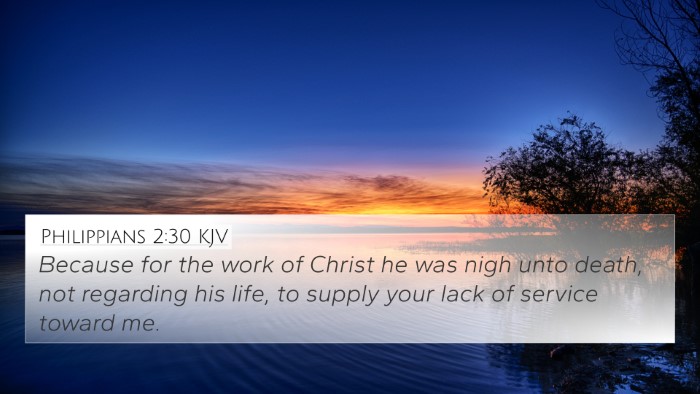
Philippians 2:30 (KJV) »
Because for the work of Christ he was nigh unto death, not regarding his life, to supply your lack of service toward me.
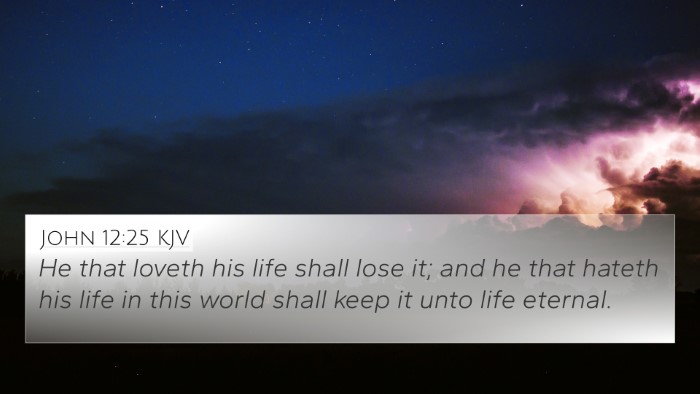
John 12:25 (KJV) »
He that loveth his life shall lose it; and he that hateth his life in this world shall keep it unto life eternal.
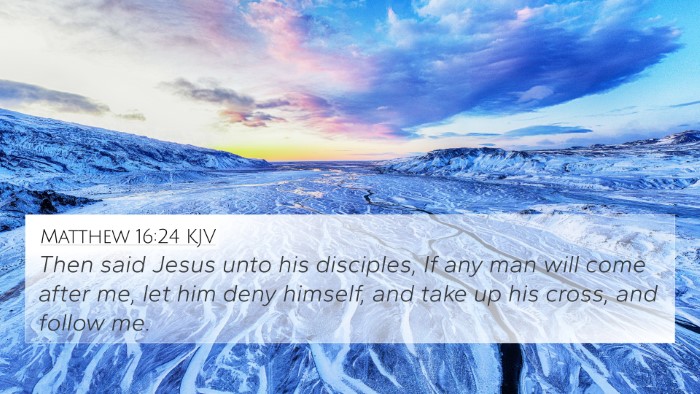
Matthew 16:24 (KJV) »
Then said Jesus unto his disciples, If any man will come after me, let him deny himself, and take up his cross, and follow me.
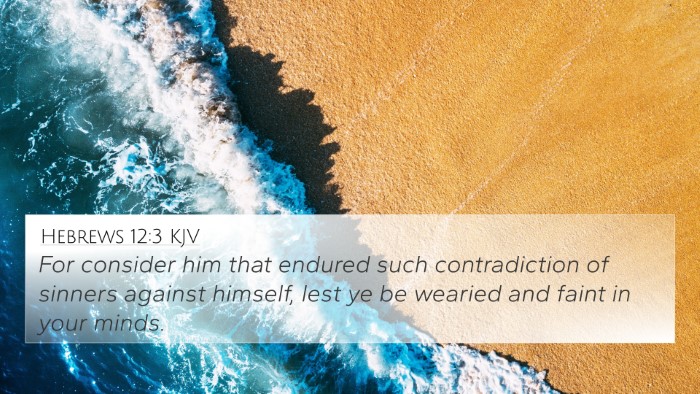
Hebrews 12:3 (KJV) »
For consider him that endured such contradiction of sinners against himself, lest ye be wearied and faint in your minds.
Esther 4:13 Verse Analysis and Similar Verses
Understanding Esther 4:13
Esther 4:13 reads: "Do not think that because you are in the king's house you alone of all the Jews will escape. " This verse is a significant turning point in the Book of Esther, capturing the urgency and gravity of the situation faced by the Jewish people in Persia.
Summary of Context
In this passage, Mordecai communicates the impending threat to the Jews and urges Esther, who is in a position of influence as queen, to act. The tone reflects both desperation and the necessity of bold action in the face of oppression. Mordecai emphasizes that silence in this time could lead to disaster not only for others but potentially for Esther herself.
Key Themes and Insights
- Divine Providence: The verse emphasizes the idea that Esther's rise to royalty may have been divinely orchestrated for such a moment. Albert Barnes highlights that Esther needs to recognize her unique position as part of God's plan for the Jews.
- Human Responsibility: Matthew Henry notes that while God has providentially placed Esther in her position, it is her responsibility to act. This reflects the interplay between divine sovereignty and human agency.
- Identification and Solidarity: Adam Clarke points out that Mordecai calls on Esther to remember her identity as part of the Jewish people, suggesting that worldly position does not exempt her from communal suffering.
Bible Verse Cross-References
To fully grasp the significance of Esther 4:13, we can explore several related passages that highlight the connections between various scriptures:
- Esther 4:14: Mordecai's exhortation to Esther continues, stressing that deliverance will arise from another place if she refuses.
- Psalm 27:1: "The Lord is my light and my salvation; whom shall I fear?" - Encourages faith in divine protection amidst danger.
- Isaiah 43:1-2: Assures God's presence and protection through trials, similar to Esther's circumstance.
- Proverbs 24:11: "Rescue those being led away to death..." - A call to action in the face of injustice.
- Matthew 5:14-16: Believers are encouraged to let their light shine before men, analogous to Esther’s need to stand out and act courageously.
- Luke 12:48: "To whom much is given, much is required." - Reflects the responsibility that comes with privilege, relevant to Esther's position.
- James 4:17: "Anyone, then, who knows the good he ought to do and doesn’t do it, sins." - Highlights the moral imperative for action when one recognizes a duty.
Exploring Inter-Biblical Dialogue
The verse invites us to engage in thematic Bible verse connections, such as the courage displayed by leaders throughout scripture in critical moments. Other figures like Moses, Esther, and even New Testament apostles model this vital stance in challenging times.
Comparative Bible Verse Analysis
Esther 4:13's reminder of the dangers of complacency can be similarly seen in:
- Jeremiah 29:11: God's plans for hope and a future can encourage believers not to be paralyzed by fear, but to act in faith.
- Acts 4:20: The apostles' commitment to speaking the truth despite threats mirrors Esther's dilemma and call to action.
Thematic Reflections
This verse also prompts reflection on the broader themes of:
- Courage and Action: Courage is not the absence of fear but the determination to act despite it.
- God's Sovereignty and Human Agency: Surrendering to God's will while taking decisive action embodies faith in practice.
- Identity and Belonging: Esther’s position reminds believers of their identity and the collective responsibility towards their communities.
Conclusion
Esther 4:13 serves as a powerful reminder of the responsibility that comes with being in a position to make a difference. By connecting this verse with cross-references throughout scripture, we see a unified message of hope, courage, and the call to action, appealing to believers to engage actively with their faith in times of crisis.
